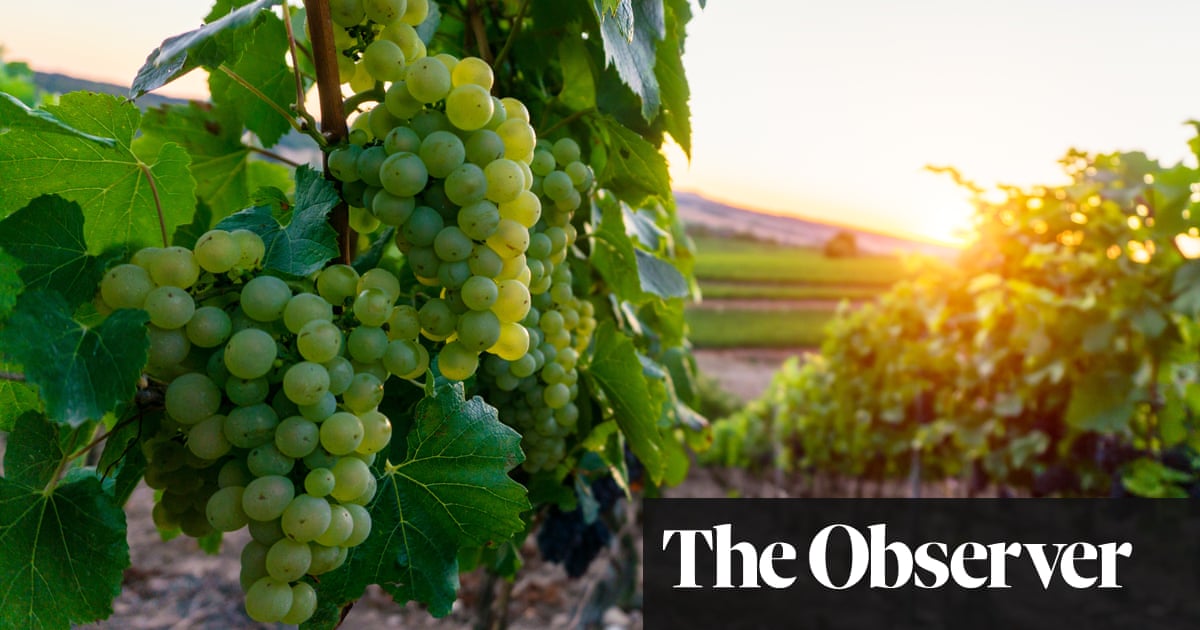Waitrose No.1 Castillo Perelada Cava Brut, Spain NV (£11.99, Waitrose)At a time when the world is being pulled apart by aggressively idiotic nationalism, examples of multinational cooperation, however small, can feel particularly precious and poignant. Nowhere more so, perhaps, than in the Mediterranean, where the savagery of war in the east and the brutality of border enforcement in the north make a nihilistic mockery of the very idea of togetherness. At their inaugural event in Catalonia’s Empordà last month, the organisers of the MediterraneanWineSymposium hoped to offer at least some sense of a different world of pan-regional collaboration, however. The event, which took place in the atmospheric medieval castle home of Catalan wine estate Castillo Perelada, saw producers from Croatia, Cyprus, France, Greece, Italy, Lebanon, Morocco, Slovenia, and Turkey, and guests from around the world join the hosts – the well-run cellar behind Waitrose’s excellent and good value sparkling wine among other gems – for a largely fascinating programme of talks and tastings.
Planeta Cometa, Menfi, Sicily, Italy 2023 (£36,greatwine.co.uk)In the organisers’ words, the Symposium’s aim was to offer ‘a comprehensive mosaic of the “Mediterranean philosophy” of understanding life and consequently wine’ and to present ‘the Mediterranean as a single region, which is the source of all the cultures that emerged from it’. That may have been a little ambitious for a day’s work. But there’s no doubt the event proved effective in focusing minds on areas of potential collaboration – with one issue dominating above all. As a seminar presented by climate scientists Maria Snoussi from Morocco’s Mohamed V University and Nathalie Ollat, a researcher at France’s National Institute for Agricultural Research, made abundantly and terrifyingly clear, the Mediterranean is in the very eye of the storm of climate change, with temperatures rising 20% faster than the global average, posing an existential threat to wine production. No wonder, then, that so many of my conversations at the event focused on means of mitigation, with many hopes pinned on the resilience of indigenous Mediterranean grape varieties, such as southern Italy’s fiano, as seen at the event in Planeta’s gorgeously richly exotic but fluent white.
Vini Noüe-Marinič Erigone Anne Jakot 1er Cru, Goriška Brda, Slovenia 2020 (£24.95,armitwines.co.uk)Is there such a thing as a single Mediterranean wine style? In his talk at the Symposium, Josep Roca, the star sommelier who, with his brothers Joan and Jordi, owns and runs the celebrated three-Michelin-starred restaurant El Celler de Can Roca in nearby Girona, saw a common thread in the way wines made from Mediterranean grape varieties often taste and smell of the Mediterranean flora, in part because they share some of the same flavour compounds. Roca also spoke of the intense light that is a feature of the region – a feature that might be said to be reflected in an extra, vivid intensity of flavour. Tasting my way round the various producers’ stands at the event, however, it was striking that, for all the occasional commonalities, Mediterranean wine is perhaps best summed up by its abundant variety: from the sinuous, silky, blossom-pretty but flinty and incisive white made by Vini Noüe-Marinič near the border with Italy in Slovenia’s Goriška Brda, to the thrilling, mountain-air-fresh whites and reds made from local varieties at high altitudes by Vouni Panayia in Pafos, Cyprus.
